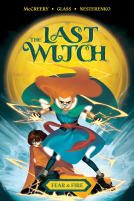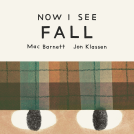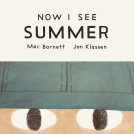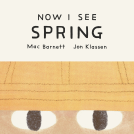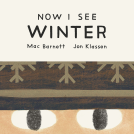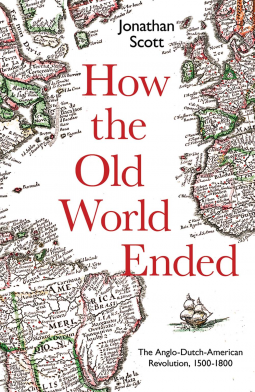
How the Old World Ended
The Anglo-Dutch-American Revolution 1500-1800
by Jonathan Scott
This title was previously available on NetGalley and is now archived.
Send NetGalley books directly to your Kindle or Kindle app
1
To read on a Kindle or Kindle app, please add kindle@netgalley.com as an approved email address to receive files in your Amazon account. Click here for step-by-step instructions.
2
Also find your Kindle email address within your Amazon account, and enter it here.
Pub Date Jan 07 2020 | Archive Date Dec 20 2019
Talking about this book? Use #HowTheOldWorldEnded #NetGalley. More hashtag tips!
Description
Between 1500 and 1800, the North Sea region overtook the Mediterranean as the most dynamic part of the world. At its core the Anglo-Dutch relationship intertwined close alliance and fierce antagonism to intense creative effect. But a precondition for the Industrial Revolution was also the establishment in British North America of a unique type of colony – for the settlement of people and culture, rather than the extraction of things.
England’s republican revolution of 1649–53 was a spectacular attempt to change social, political and moral life in the direction pioneered by the Dutch. In this wide-angled and arresting book Jonathan Scott argues that it was also a turning point in world history.
In the revolution’s wake, competition with the Dutch transformed the military-fiscal and naval resources of the state. One result was a navally protected Anglo-American trading monopoly. Within this context, more than a century later, the Industrial Revolution would be triggered by the alchemical power of American shopping
A Note From the Publisher
Jonathan Scott is Professor of History at the University of Auckland. His previous publications include England’s Troubles and When the Waves Ruled Britannia.
Advance Praise
“Everything about this book is bravura: its conceptual originality, scope and ambition, its rich and close reading of texts and its brilliant writing. It exudes the joy of both discovery and recovery and it exudes the power of startling connections.“
—John Morrill FBA, Emeritus Professor of British and Irish History, University of Cambridge, and Fellow of Selwyn College
"In Jonathan Scott we have a master of political and religious history, and of the history of political thought, who transcends geographical space and time periods so that he can write a genuine 'histoire totale' of a critical phase in world history. As he did in England's Troubles, Scott in this stimulating book makes the very timely case for why, in seeking the roots of England's remarkable early modern and subsequent political and economic developments, an Anglo-Dutch comparative framework is fruitful - far more so than one which stresses exceptionalism or separateness from the rest of Europe."
—Richard M. Smith, Emeritus Professor of Historical Geography and Demography and Fellow of Downing College
"Incredibly ambitious, wide-ranging and fluent. How The Old World Ended is a good and stimulating (and sometimes annoying) read, and it nails its colours to the mast in relation to the contemporary significance of the developments it narrates."
—Michael J Braddick, Professor of History, University of Sheffield
“A superbly engrossing history of perhaps the most momentous period since the Stone Age. By turns sweeping and intimate, it demonstrates how the political events of that age – the English, American, and French Revolutions – were never separate from the social, economic, scientific, religious, and natural experiences of those living through them. Anyone interested in how we got into our present state will find things to provoke, excite, and infuriate on every page. "
—Adrian Johns, Professor of History, University of Chicago
Available Editions
| EDITION | Other Format |
| ISBN | 9780300243598 |
| PRICE | $35.00 (USD) |
| PAGES | 392 |
Average rating from 10 members
Readers who liked this book also liked:
L.M Montgomery
Children's Fiction, Comics, Graphic Novels, Manga, Teens & YA
We Are Bookish
General Fiction (Adult), Romance, Women's Fiction
Silvia Moreno-Garcia
Historical Fiction, Literary Fiction, Sci Fi & Fantasy

